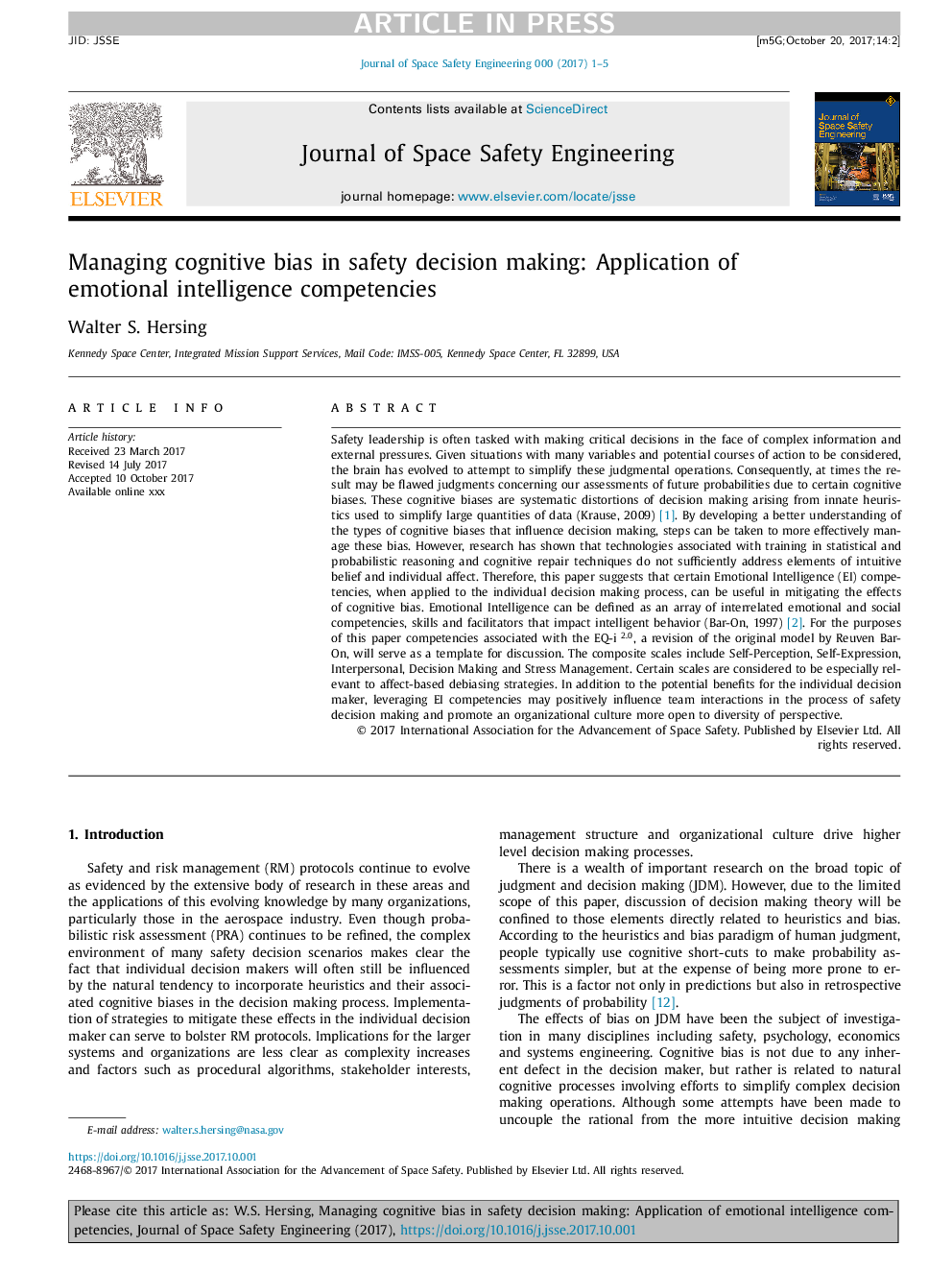| Article ID | Journal | Published Year | Pages | File Type |
|---|---|---|---|---|
| 8918362 | Journal of Space Safety Engineering | 2017 | 5 Pages |
Abstract
Safety leadership is often tasked with making critical decisions in the face of complex information and external pressures. Given situations with many variables and potential courses of action to be considered, the brain has evolved to attempt to simplify these judgmental operations. Consequently, at times the result may be flawed judgments concerning our assessments of future probabilities due to certain cognitive biases. These cognitive biases are systematic distortions of decision making arising from innate heuristics used to simplify large quantities of data (Krause, 2009) [1]. By developing a better understanding of the types of cognitive biases that influence decision making, steps can be taken to more effectively manage these bias. However, research has shown that technologies associated with training in statistical and probabilistic reasoning and cognitive repair techniques do not sufficiently address elements of intuitive belief and individual affect. Therefore, this paper suggests that certain Emotional Intelligence (EI) competencies, when applied to the individual decision making process, can be useful in mitigating the effects of cognitive bias. Emotional Intelligence can be defined as an array of interrelated emotional and social competencies, skills and facilitators that impact intelligent behavior (Bar-On, 1997) [2]. For the purposes of this paper competencies associated with the EQ-i 2.0, a revision of the original model by Reuven Bar-On, will serve as a template for discussion. The composite scales include Self-Perception, Self-Expression, Interpersonal, Decision Making and Stress Management. Certain scales are considered to be especially relevant to affect-based debiasing strategies. In addition to the potential benefits for the individual decision maker, leveraging EI competencies may positively influence team interactions in the process of safety decision making and promote an organizational culture more open to diversity of perspective.
Related Topics
Physical Sciences and Engineering
Earth and Planetary Sciences
Space and Planetary Science
Authors
Walter S. Hersing,
